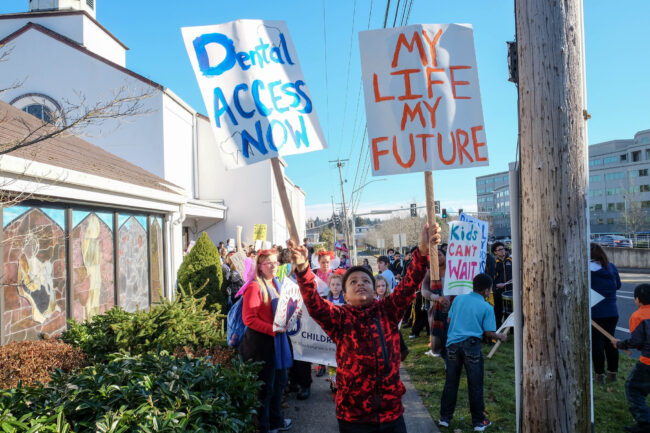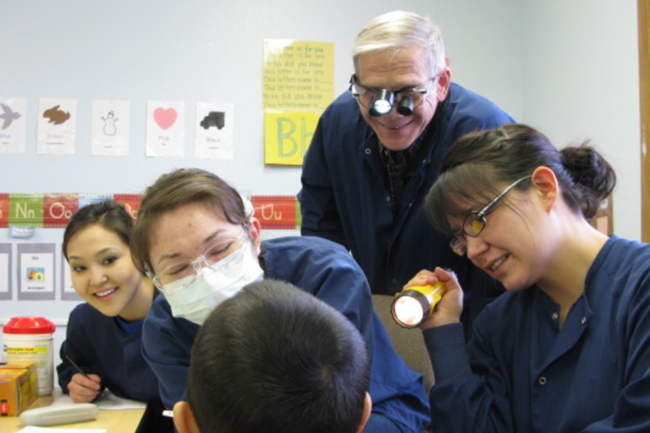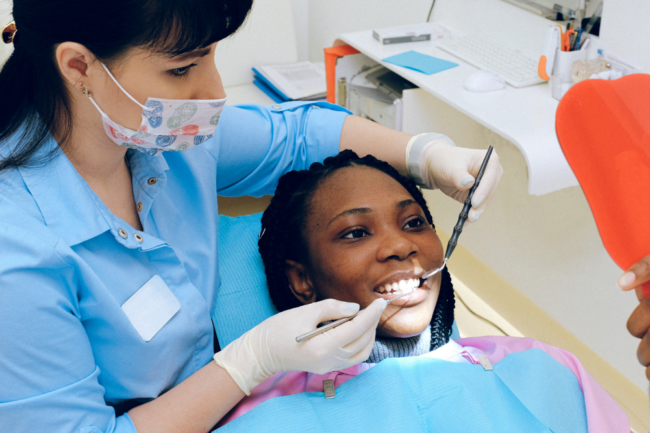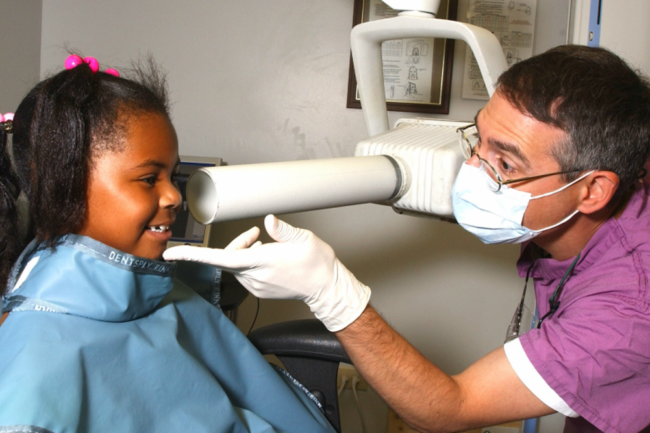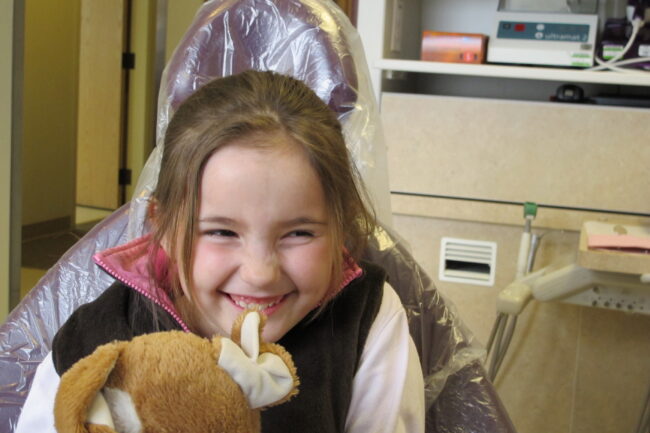Dental Access Project
Oral health, or healthy teeth and gums, is a big part of overall health – with physical, social, and emotional impacts. And, oral health also has an enormous financial impacts. In fact, dental care in the US presents the highest financial burden of any health care service, and poor oral health can negatively affect employment and earnings.
Despite the importance of oral health, millions of people in the US lack access to preventive programs, dental insurance, and dental care—which disproportionately impacts many systemically excluded communities, including Black people, Hispanic people, people with low incomes, rural communities, Tribal communities, and people with disabilities.
Community Catalyst created the Dental Access Project to address inequitable access and other barriers to care. We partner with community advocates to identify and implement community-based solutions. This includes supporting state and tribal partners in creating policy change that helps people get quality, affordable dental care where and when they need it, in their own communities, with particular attention to communities of color, tribal communities and low-income populations, as well as other groups who have been ignored by or intentionally excluded from the current oral health delivery system.
We’ve built a national network of local, state, and tribal partners that have joined together to offset the power balance in dentistry, putting community voices and community interests first–even in the face of special interest groups.
As part of this effort, our collective work advocates for the expansion of dental health teams to include a mid-level dental provider called a dental therapist. These practitioners are specially trained to deliver oral health care in community-based settings under the supervision of a dentist. We are promoting the role of dental therapists to increase access to care, with the goal of authorizing dental therapists in state and tribal laws.
For example, a dental therapy bill in Connecticut had languished for years with debate centered entirely between the dental association and dental hygiene association. It wasn’t that community voices were non-existent—rather, they were ignored. We joined forces with the CT Oral Health Initiative to educate stakeholders about how oral health is actually a public health issue that directly affects communities. This allowed community advocates to join the conversation and speak to the needs of patients, not just providers. As a result, there is a sustained movement to re-shape Connecticut’s dental therapy law to meet the needs of communities currently suffering from inadequate access to high-quality oral health care.
Our work aims to:
- Advance state and federal policies to expand access to comprehensive and affordable dental coverage across public and private insurance programs
- Support training and deployment of community-based and representative oral health provider models, like dental therapists
- Identifying practice and policy changes to integrate individualized and evidence-based oral health care into medical and community-based settings
- Build community power that fuels movements for oral health care systems that respond to their needs
To date, our collaborative efforts have supported the expansion of Medicaid adult dental coverage at the state level; presented federal policy proposals to make affordable dental coverage available in Medicaid, Medicare, and the ACA health insurance marketplaces; allowed for dental therapists in several states; and renewed support among federal policymakers for a community-based oral health workforce. We are also proud to co-chair the National Partnership for Dental Therapy with the National Indian Health Board and the National Coalition of Dentists for Health Equity.
“I’m proud of our unapologetic position against special interests. We stood by AN/AI tribal leaders, following their leadership in reimagining oral health delivery system and building a locally grown workforce. More broadly, we maximize the expertise and perspective of communities affected by oral health inequities.”
